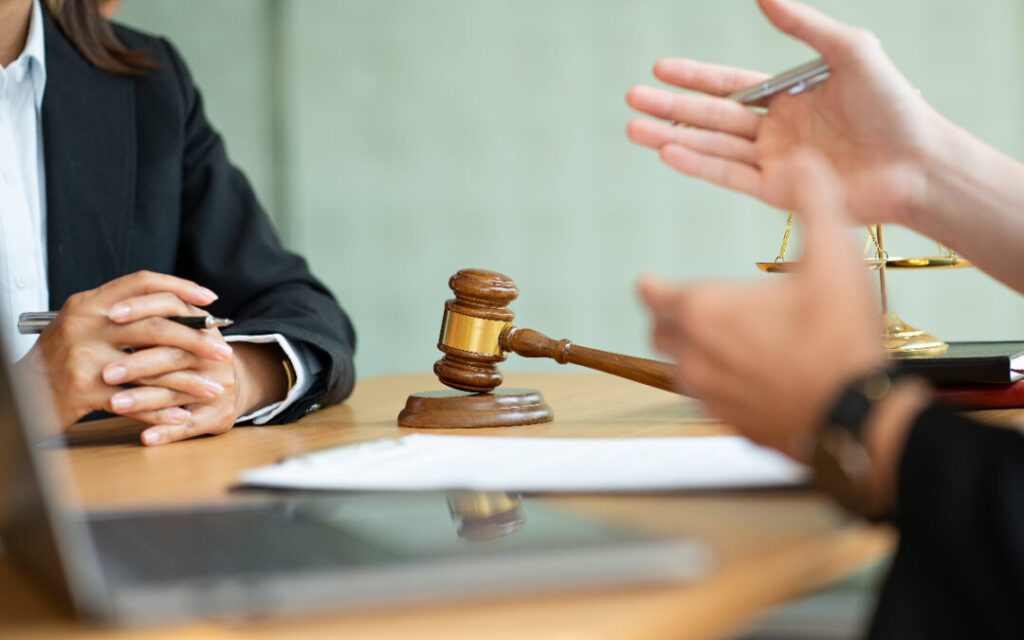
Navigating the complex world of bankruptcy can be a daunting task, especially when dealing with financial stress. As experienced Atlanta bankruptcy lawyers, we provide professional legal solutions aimed at offering debt relief tailored to your unique situation. Our role as bankruptcy attorneys is not just to guide you through the legal process, but to offer a compassionate consultation that determines the best path forward.
When considering bankruptcy, it’s crucial to have a team on your side that understands the intricacies of Atlanta’s legal environment. We pride ourselves on our professionalism, ensuring that every client feels heard and supported. Whether you’re facing overwhelming debt or considering different legal options, our expertise can provide the clarity you need.
Through our comprehensive consultations, we strive to provide not just immediate debt relief, but also strategies for long-term financial health. The decision to file for bankruptcy isn’t easy, and we are committed to offering support every step of the way. Our dedicated approach to each case ensures that you receive the guidance necessary to make informed decisions for your future. learn more about Atlanta bankruptcy lawyers
Understanding Bankruptcy in Atlanta
In Atlanta, those dealing with overwhelming debt have several bankruptcy options available under the U.S. Bankruptcy Code. Key chapters include Chapter 7, Chapter 13, and Chapter 11. Navigating the bankruptcy process can be complex, and choosing the right lawyer is essential for a smoother experience.
Different Chapters of Bankruptcy
Bankruptcy law provides options tailored to individual circumstances, such as Chapter 7, Chapter 13, and Chapter 11. Chapter 7 is often referred to as liquidation bankruptcy. It allows individuals to discharge unsecured debts like credit cards, subject to passing the Means Test, which assesses eligibility based on income relative to the median state income.
Chapter 13 allows those with regular income to develop a repayment plan lasting three to five years. Debtors can keep their property while catching up on overdue payments.
For businesses in Atlanta facing financial difficulties, Chapter 11 enables restructuring debts to continue operations. Each chapter in the Northern District of Georgia provides specific solutions for debt problems.
The Bankruptcy Process
Bankruptcy Filing begins with gathering financial records and completing the necessary forms. In Atlanta, the Northern District of Georgia is the jurisdiction handling these cases. We must complete credit counseling and pass the Means Test if filing for Chapter 7.
Submitting a petition with the bankruptcy court initiates the automatic stay. This halts collections, foreclosures, and more, giving relief from creditors. Trustees then oversee the case, administering assets and reviewing the repayment plan if under Chapter 13.
Discharge is granted at the end of the process, relieving us of unsecured debts. Paying attention to deadlines and court requirements is crucial for a successful outcome. Each step requires strategic decisions, often benefitting from legal counsel’s guidance.
Choosing the Right Bankruptcy Lawyer
Selecting the right bankruptcy lawyer is crucial in navigating the complexities of bankruptcy law in Atlanta. A competent lawyer helps determine the best bankruptcy chapter for our situation, ensuring compliance with federal and local laws.
We need to consider experience, especially with the Northern District of Georgia courts, to appeal our specific debt challenges. Check for qualifications, client reviews, and successful case outcomes.
Cost is also a factor; understanding the fee structure upfront helps avoid unexpected expenses. With the right lawyer, we can better manage debt problems and work towards financial stability.
Protecting Assets and Managing Debt
In navigating bankruptcy, it’s crucial to understand its implications on foreclosures, repossessions, and wage garnishments. Equally important is understanding both creditor harassment and post-bankruptcy life.
Effects of Bankruptcy on Foreclosure and Repossessions
Bankruptcy, particularly Chapter 13, can provide remedies against foreclosure and repossession. By reorganizing our debts, we may be able to keep our homes or vehicles while catching up on missed payments.
Bankruptcy Exemptions are vital as they can protect certain assets from liquidation under Chapter 7. What’s exempt varies by state, often including equity in a home or vehicle. This legal protection helps us maintain essential assets while working towards stability.
Dealing with Garnishments and Creditor Harassment
When dealing with wage garnishments, filing for bankruptcy can halt this process immediately through an automatic stay. This legal order mandates creditors to cease collection activities, offering us immediate relief.
Creditor harassment, including frequent calls and legal threats, often stops once bankruptcy proceedings begin. Our legal rights mean creditors must work within court proceedings. This provides a reprieve, allowing us to explore debt relief solutions without undue pressure.
Life After Bankruptcy
After bankruptcy, regaining financial freedom is a priority. Our approach will center on cautious financial planning, improving our credit score, and exploring bankruptcy alternatives for future issues.
Creditors usually view us differently post-bankruptcy, but with responsible use of secured credit cards and timely bill payments, we can rebuild our creditworthiness. A fresh start involves creating a sensible budget and perhaps considering debt settlement where necessary.
While bankruptcy offers relief, establishing healthy financial habits ensures long-term stability. Being proactive in financial management helps us prevent future difficulties.




